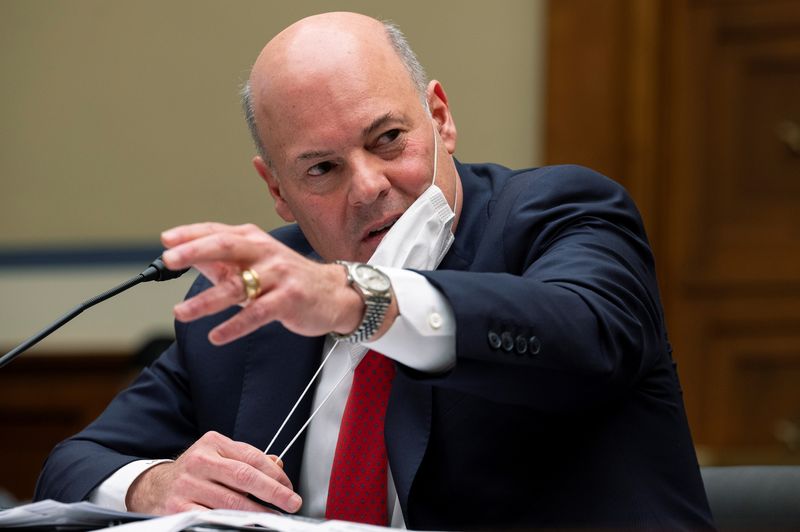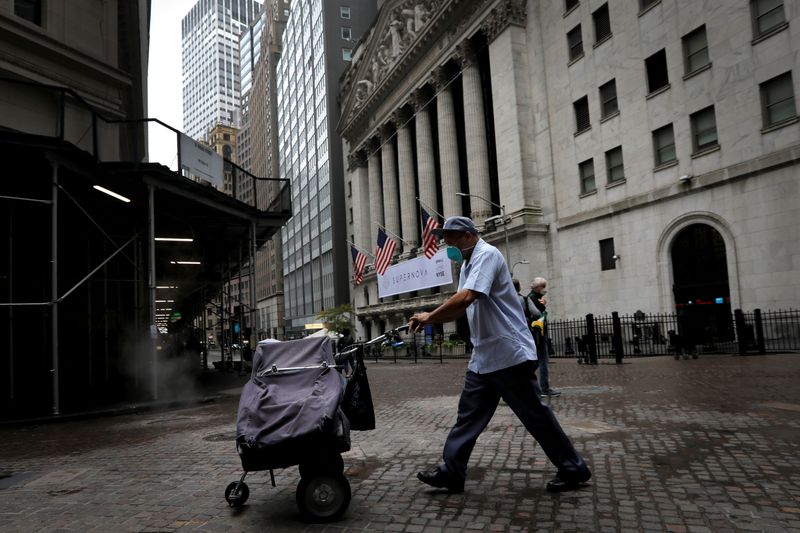By David Shepardson
WASHINGTON (Reuters) - The U.S. mail system is losing $10 billion a year and urgently needs reform and legislative relief from Congress, U.S. Postmaster General Louis DeJoy told lawmakers on Wednesday.
"I would suggest that we are on a death spiral," DeJoy told the U.S. House Oversight and Government Reform committee at a hearing, who did not rule out changing first-class deliver standards or other significant changes.
DeJoy, a supporter of former President Donald Trump appointed to head the Postal Service last year, suspended operational changes in August after heavy criticism over postal delays. He plans to release a new 10-year strategic "break-even" plan soon.
Delays in paychecks and other mail deliveries by the Postal Service, or USPS, gained attention this summer as a record number of voters mailed in ballots to elect a new president.
House Oversight and Government Reform Committee Chairwoman Carolyn Maloney made the case for action as the USPS faces shrinking volumes of first-class mail, increased costs of employee compensation and benefit, and higher unfunded liabilities and debt.
New Postal Board chairman Ron Bloom, who said that the USPS is currently projected to lose $160 billion over the next decade, told lawmakers "we can’t just throw money at the problem. We must address the systemic issues plaguing its outdated model."
At the hearing Representative Cori Bush, a Democrat, noted the current postal board, with only six men, lacks diversity and "looks like a millionaire white boys club?"
Late Wednesday, President Joe Biden announced he was nominating a woman and two men of color to fill three open seats on the board, including the former general counsel of the American Postal Workers Union, the CEO of the National Vote at Home Institute and a former deputy postmaster general.
The USPS reported net losses of $86.7 billion from 2007 through 2020. One reason is 2006 legislation mandating that it pre-fund more than $120 billion in retiree health care and pension liabilities, a requirement labor unions have called an unfair burden not shared by other businesses.
Maloney has circulated draft legislation on some USPS financial issues, such as eliminating a requirement to pre-fund retiree health benefits and require postal employees to enroll in government-retiree health plan Medicare, for a saving of $40 to $50 billion over 10 years. "The Postal Service is facing a dire financial situation that requires us to act," she said.
DeJoy said the reform bill alone "doesn't solve the problem." He also rebuffed calls from some Democrats to step down vowing that he will stay "a long time. Get used to it."
Bloom said the USPS will ask the Biden administration to calculate pension obligations "using modern actuarial principles" that would save another $12 billion.

Mark Dimondstein, president of the American Postal Workers Union, urged Congress to award the USPS an additional $15 billion and called for a separate "modernization grant" of $25 billion. In December, Congress converted a $10 billion U.S. Treasury loan to the USPS into a grant.
